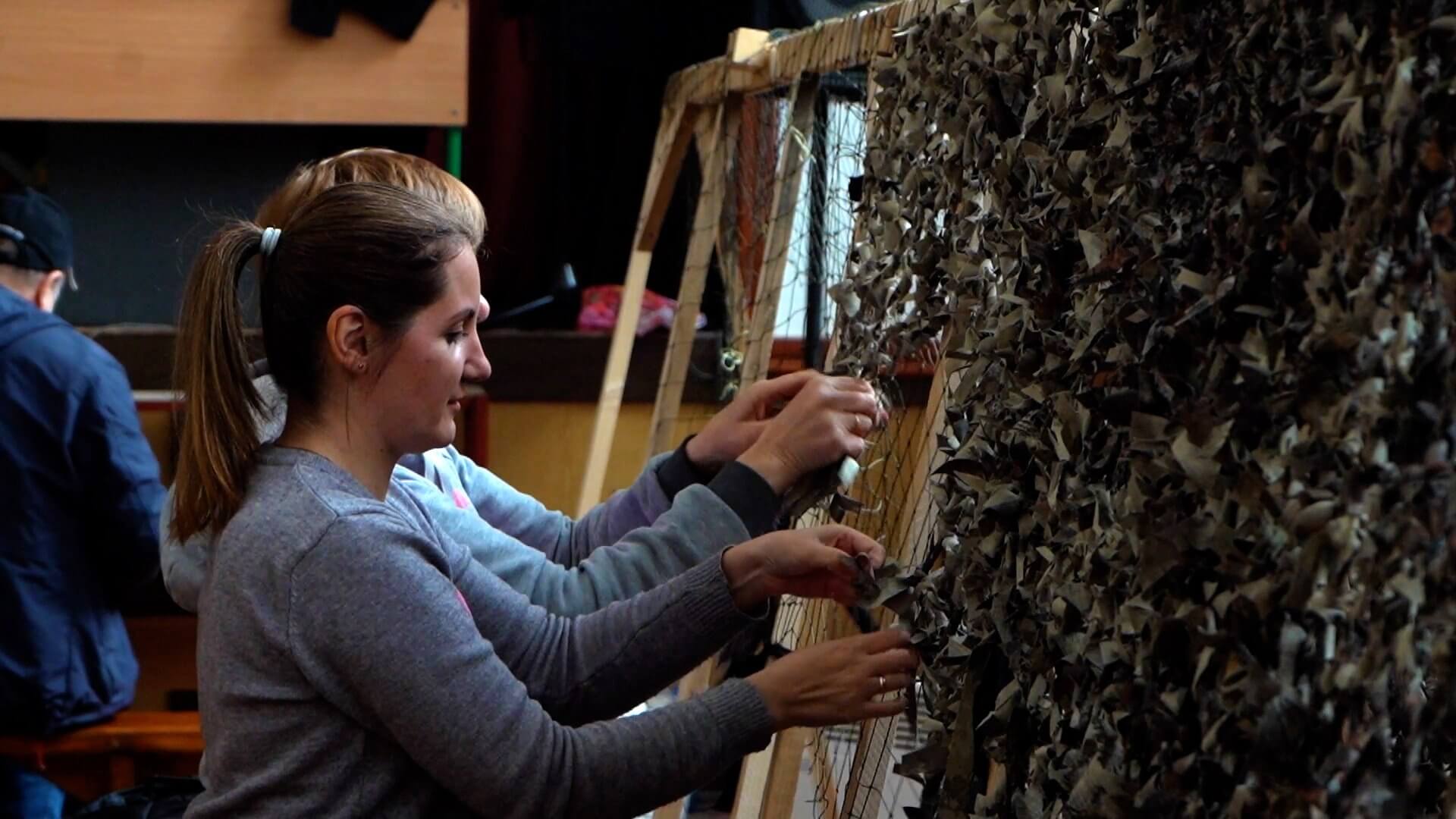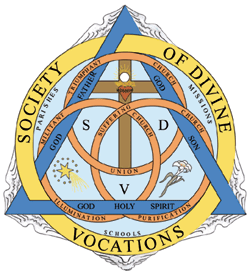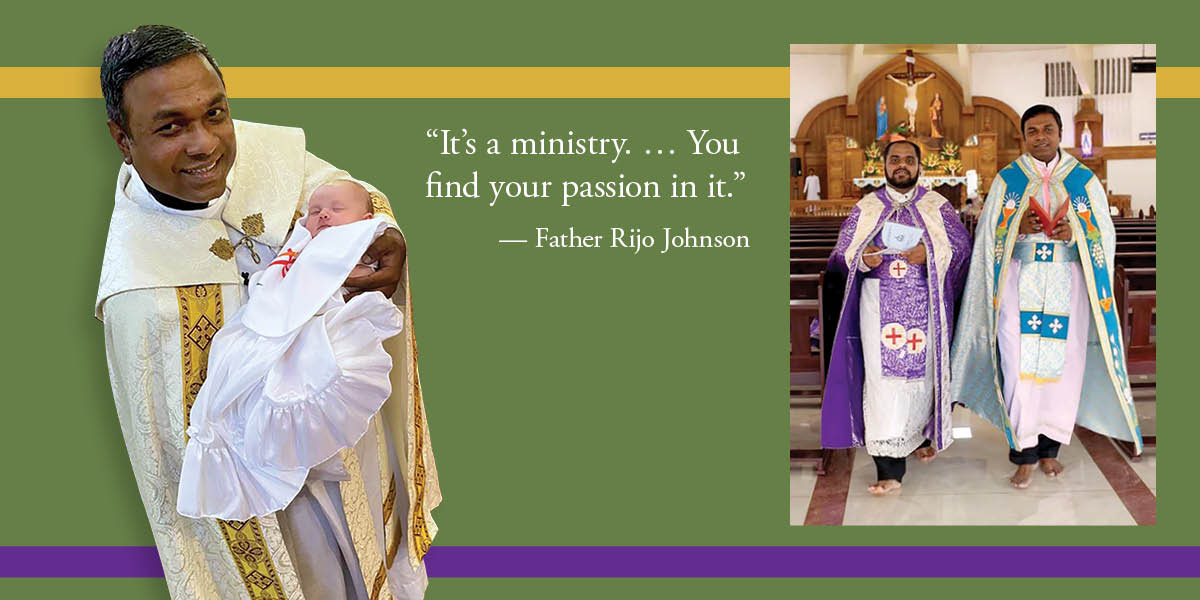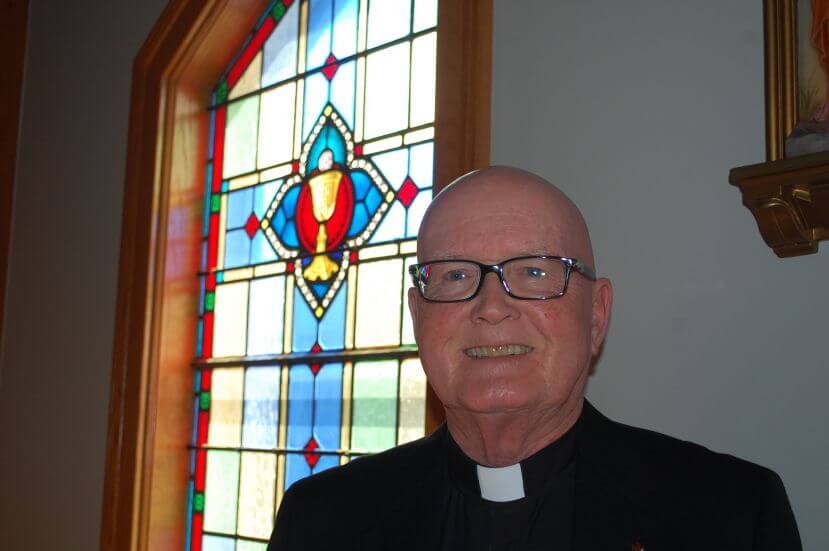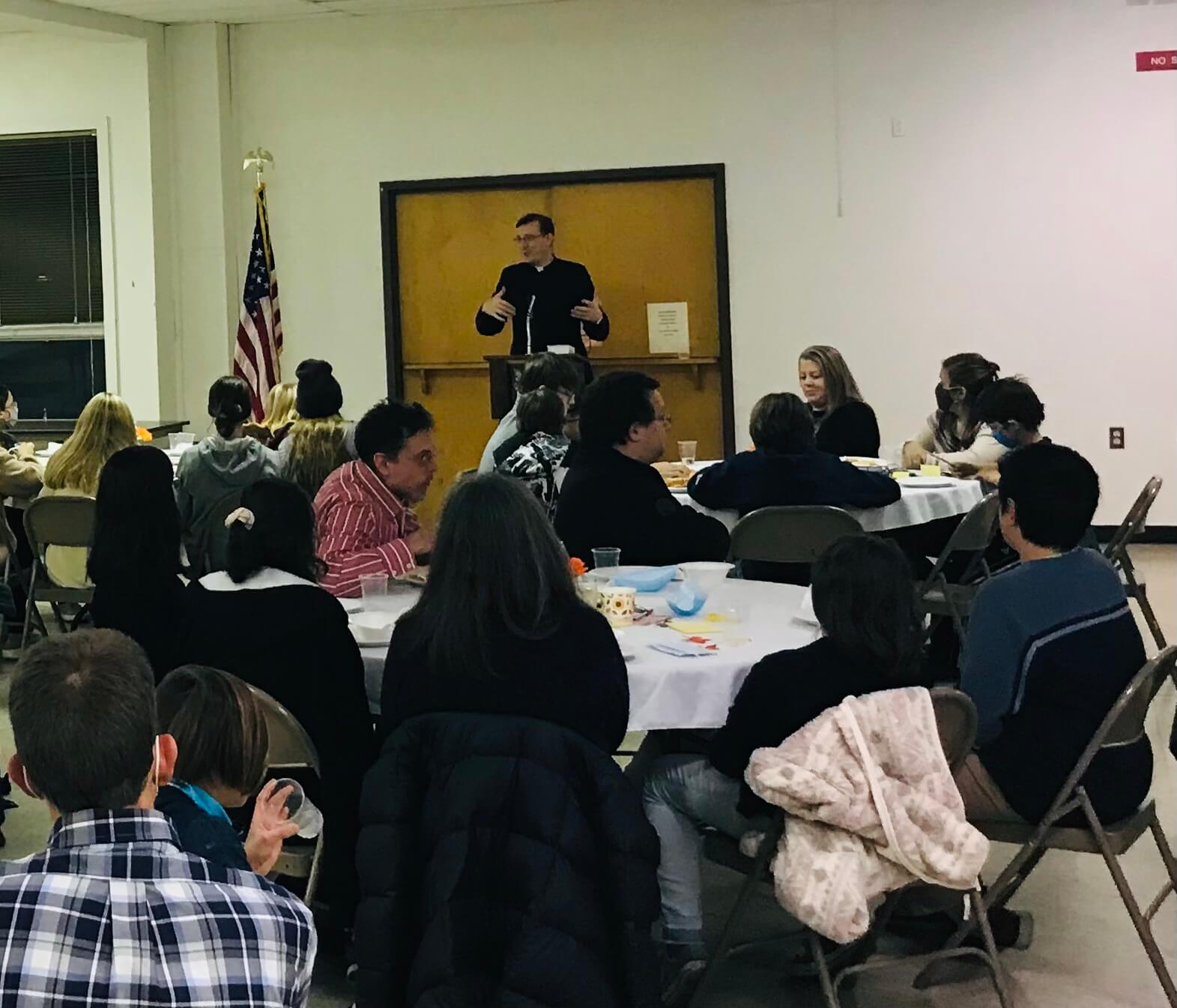This is a list of nine steps in discerning a vocation provided by Father Jon Schnobrich, vocations director for the Diocese of Burlington.
Step 1: Understanding “discernment”
What is vocational discernment?
Vocation comes from the Latin word “vocare,” which means “to call.” God calls each one of us by name to become saints, thereby the first vocation in our lives is the universal call to holiness: “Be perfect as your heavenly father is perfect” (Mt 5:48).
How do perfection and holiness relate to each other? Let’s understand what our Lord means by “perfect” as that word today is so unfortunately misunderstood. Being perfect is not perfectionism.
This call to be perfect comes as the climax in our Lord’s teaching on Christian love: “You have heard that it was said, ‘You shall love your neighbor and hate your enemy.’ But I say to you, love your enemies, and pray for those who persecute you that you may be children of your heavenly Father, for He makes His sun rise on the bad and the good and causes rain to fall on the just and the unjust. For if you love those who love you, what recompense will you have? Do not the tax collectors do the same? And if you greet your brothers only, what is unusual about that? Do not the pagans do the same? So be perfect, just as your heavenly Father is perfect (Mt 5:43-48).”
Jesus points to the Father’s love, which is without calculation or condition. The Father loves in truth with mercy. He loves sinners and saints alike. To freely conform one’s life, one’s inner attitudes and one’s way of thinking so as to love unconditionally and mercifully is the holiness of life to which our Lord calls all of His disciples without distinction.
However, to love like this means to love in the way that God reveals. God is love, which means that we as creatures look to our creator to define love. To love as God loves, as St. Thomas Aquinas explains, is to will the good of the other for the other; to desire another to flourish in their being. The perfection to which Jesus calls us relates to holiness of life precisely in love. Love conforms itself to its object; thereby the more we love God who is love, the more we become like God who is love.
To put it simply: If God is love, the more we love love, the more we are able to love as love loves.
The universal call to holiness is the call from Christ through His Church to become fully who God intended us to be. In the words of St. Irenaeus of Lyon, “The glory of God is the human being fully alive.” Because Christ is holy, we, His body, are called to strive each day for the sanctification of our lives, the integration of all that we are into all that Christ is: “Each in his own state of life, tend to the perfection of love, thus helping others grow in holiness” (“Lumen Gentium,” 5, 39). Every disciple is called to perfect love, to love the way the Father loves.
Step 2: Desire
Made in God’s image and likeness, each of us has a heart filled with desires created by God and for God. We desire the fullness of life. We desire an eternal love. We desire happiness. We desire to make a gift of ourselves to others. But as much as we feel the intensity of these desires at different moments, Jesus desires them for us even more. Yet, here’s the catch — our desires have to be ordered to God’s will with trust that God always knows what is best for us (see Luke 11:11-13). The prayer of one discerning sounds like, “Lord, help me to want what you want for my life. God, what do you desire for me?” In the discerning heart, trusting in the goodness of the Father opens us to receive whatever He wants for us, through which God reveals Himself.
Step 3: Trust
Love is not discovered but received as a gift, and just as every vocation is a call to love, it always comes as a gift from Jesus. To receive this gift, one must trust God from his or her heart. The place where Jesus will ask you to trust Him is wherever you are consciously aware of a reality beyond you (see Matthew 14:22-33). You can’t figure it out; it’s beyond your ability to control. Just like St. Peter being called by Jesus to step out of the boat onto the water during the raging storm, the Lord calls us to trust Him when we are confronted with those realities that are “beyond,” like living celibately or committing to one person totally until death. This classroom of dependence is where God teaches the discerning heart to trust and allows us to experience His great providence caring for us.
Step 4: Patience
Rarely is one’s vocation realized in a single moment of inspiration. Instead, it’s revealed to us over time as we grow in our relationship with Jesus. This can feel frustrating at times; we may find ourselves anxious and looking into the future beyond what we know and understand. But God simply wants us to trust Him and to take the next step. St. Ignatius of Loyola did not set out on his life journey with the intention of founding the Society of Jesus. He did, however, nurture his relationship with Jesus, and he realized that acting on what he knew God wanted him to do at that point in time resulted in more peace than dwelling on what he thought God might want him to do in the future. God’s will becomes known to us over time, and patience is accepting this truth.
Step 5: Peace
In the presence of Christ, there is peace. Our task is to realize this peace and to desire it. This was Christ’s first wish for us after His resurrection when He said to the disciples, “Peace be with you” (Jn 20:19). If peace, stillness, clarity and gratitude are the interior experiences and feelings one can use to describe a certain situation or decision one is faced with, that person can be confident that Christ is revealing Himself through those experiences and feelings.
Step 6: Fear is not of God
Just as there are experiences of God, there are also feelings like fear, pressure and confusion that are not of God. These can arise during busy and stressful times when our wants can become confused with God’s will. During the Agony in the Garden of Gethsemane, Jesus faced the decision to escape His passion or to enter into it. He prayed, “Father, if you are willing, take this cup away from me; still, not my will but yours be done” (Lk 22:42). In the world’s most decisive moment, Jesus turned to prayer and discerned the Father’s will. Through prayer, the sacraments and attentiveness to our interior experiences, we can determine which paths in life are of God and which paths are of the spirit against Christ.
Step 7: One With God’s Will
Sometimes we find ourselves asking God for a sign to help us know what God wants for us. However, God has already given us all the “tools” necessary to discern God’s will. The thoughts, feelings and desires we have while we experience peace and stillness in the presence of Christ are God’s thoughts, feelings and desires. By the same token, feelings that flow from fear, pressure and confusion are not of God — they stem from a false belief or lie. To tell where one’s thoughts and desires come from is discernment, and when we do this, our will becomes one with God’s.
Step 8: Saying ‘Yes’
Once we realize God’s will through peace during prayer and the sacraments, it’s essential to hold onto it. Remembering His will allows us not only to say “yes” to Christ in other moments of peace but to also say “no” to beliefs and desires that arise from a place of fear and confusion, which are not of God. St. Augustine spent years saying “no” to beliefs and desires that were of God’s will and saying “yes” to his own beliefs that he formed based on the spirit against Christ. This led to years of confusion and a life without direction. He summarized life perfectly when he said, “You have made us for yourself, O Lord, and our hearts are restless until they rest in you.” After encountering God, St. Augustine repeatedly said “yes” to God’s will and found his vocation.
Step 9: Hearing Christ Through The Church
Every vocation must be confirmed by the Catholic Church. Therefore, Christ not only speaks to each individual human heart but also through the heart of His bride, the Church. For those called to the priesthood, this means that Christ’s desire be made clear not only through the man discerning but through those appropriate superiors like the bishop, the seminary rector and the vocation director who can speak with the Church’s authority about one’s particular journey of discernment.
For more information, visit the Vocations webpage.
— This article was originally published as a series in Vermont Catholic magazine.
